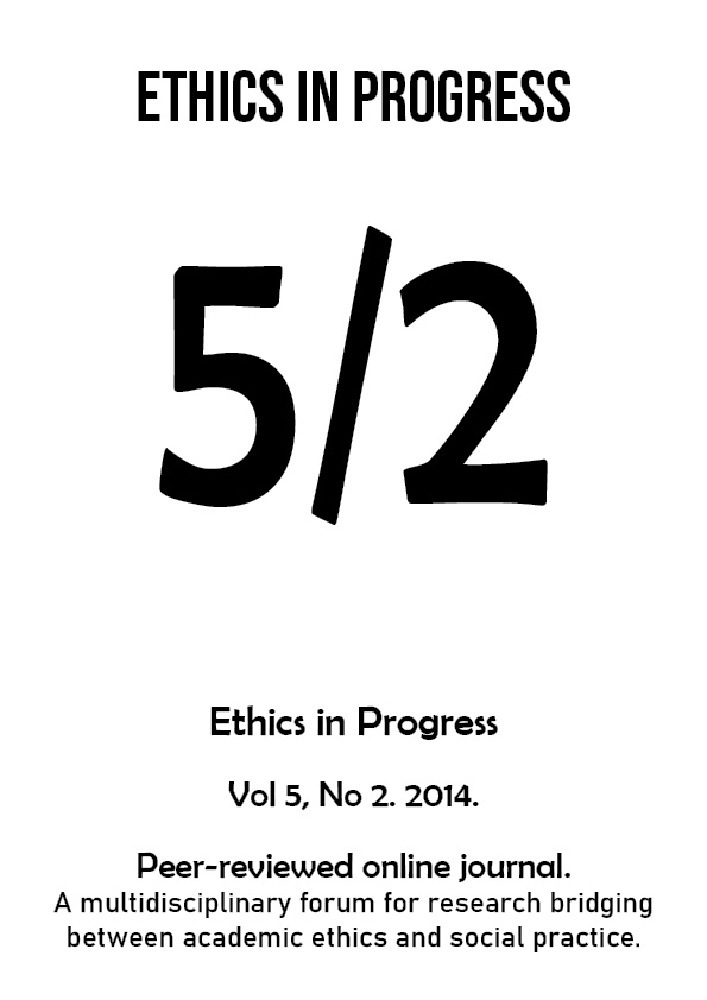Abstract
The paper addresses two issues that have been recently debated in the literature on free will, moral responsibility, and the theory of punishment. The first issue concerns the descriptive project, the second both the substantive and the prescriptive project. On theoretical, historical and empirical grounds, we claim that there is no rationale for fearing that the spread of neurocognitive findings will undermine the ordinary practice of responsibility attributions. We hypothetically advocate two opposite views: (i) that such findings would cause the collapse of all punitive practices; (ii) that, on the contrary, such findings would open the way to more humane forms of punishment, which would be justified on purely utilitarian grounds. We argue that these views are both wrong, since whereas a sound punitive system can be justified without any reference to moral responsibility, it will certainly not improve the humaneness of punishment.
References
Baumeister, R. F., Masicampo, E. J., & DeWall, C. N. 2009. “Prosocial Benefits of Feeling Free: Disbelief in Free Will Increases Aggression and Reduces Helpfulness.” Personality and Social Psychology Bulletin 35(2): 260-268.
Boyd, R., Gintis, H., Bowles, S., & Richerson, P. J. 2003. “The Evolution of Altruistic Punishment.” Proc. Natl. Acad. Sci. USA 100: 3531-3535.
Caruana, F. 2010. “Due problemi sull’utilizzo delle neuroscienze in giurisprudenza.” Sistemi Intelligenti 2: 337-346.
Dennett, D. C. 2003. Freedom Evolves. London: Penguin Books.
Fehr, E. & Gächter, S. 2002. “Altruistic Punishment in Humans.” Nature 415: 137-140.
Fehr, E. & Fischbacher, U. 2004. “Social Norms and Human Cooperation.” Trends in Cognitive Sciences 8: 185-190.
Flanagan, O. 2002. The Problem of the Soul. New York: Basic Books.
Gazzaniga, M. 2008. “The Law and Neuroscience.” Neuron 60: 412-415.
Gilbert, D. T., Pinel, E. C., Wilson, T. D., Blumberg, S. J., & Wheatley, T. P. 2002. “Durability Bias in Affective Forecasting.” In Gilovich, T., Griffin, D., & Kahneman, D. (Eds.), Heuristics and Biases: The Psychology of Intuitive Judgment. Cambridge: Cambridge University Press.
Greene, J. & Cohen, J. 2004. “For the Law, Neuroscience Changes Nothing and Everything.” Philosophical Transactions of the Royal Society of London,B 359: 1775-1785.
Guth, W., Schmittberger, R., & Schwarze, B. 1982. “An Experimental Analysis of Ultimatum Bargaining.” Journal of Economic Behavior and Organization 3: 367-88.
Haidt, J. 2003. The Moral Emotions. In Davidson, R. J., Scherer, K. R., & Goldsmith, H. H. (Eds.), Handbook of affective sciences. Oxford: Oxford University Press.
Haidt, J. & Sabini, J. 2000. What Exactly Makes Revenge Sweet?. Unpublished manuscript.
Hart, H. L. A. 1968. Punishment and Responsibility. Oxford: Oxford University Press.
Kane, R. 1999. “Responsibility, Luck, and Chance: Reflections on Free Will and Indeterminism.” Journal of Philosophy 96: 217-240.
Kim, J. 1998. Mind in a Physical World. Cambridge (Mass.): MIT Press.
Knobe, J. & Nichols, S. 2008. Experimental Philosophy. Oxford: Oxford University Press.
Michaels, A. C. 2004. “Fastow and Arthur Andersen: Some Reflections on Corporate Criminality, Victim Status, and Retribution.” Ohio State Journal of Criminal Law 2: 551-71.
Milgram, S. 1963. “Behavioral Study of Obedience.” Journal of Abnormal and Social Psychology 67: 371-378.
Nadelhoffer, T. & Feltz, A. 2007. “Folk Intuitions, Slippery Slopes, and Necessary Fictions: An Essay on Saul Smilansky’s Illusionism.” Midwest Studies in Philosophy 31: 202-213.
Nahmias, E. 2006. “Folk Fears About Freedom and Responsibility: Determinism vs. Reductionism.” Journal of Cognition and Culture 6(1-2): 215-38.
Nahmias, E. (forthcoming, in press). “The Psychology of Free Will.” In Prinz, J. (Ed.), The Oxford Handbook on Philosophy of Psychology. Oxford: Oxford University Press. Retrieved from: <http://www2.gsu.edu/~phlean/papers.html>.
Nahmias, E. & Murray, D. (forthcoming, in press). “Experimental Philosophy on Free Will: An Error Theory for Incompatibilist Intuitions.” In Aguilar, J., Buckareff, A., & FrankisH, K. (Eds.), New Waves in Philosophy of Action. Palgrave-Macmillan, <http://www2.gsu.edu/~phlean/papers.html>.
Nahmias, E., Morris, S., Nadelhoffer, T., & Turner, J. 2005. “Surveying Free Will: Folk Intuitions About Free Will and Moral Responsibility.” Philosophical Psychology 18(5): 561-584.
Nahmias, E. 2006. “Is Incompatibilism Intuitive?.” Philosophy and Phenomenological Research 73(1): 28-53.
Nichols, S. 2006. “Folk Intuitions About Free Will.” Journal of Cognition and Culture 6: 57-86.
Nichols, S. 2007. “After Incompatibilism: A Naturalistic Defense of the Reactive Attitudes.” Philosophical Perspectives 21: 405-428.
Nichols, S. 2008. “How Can Psychology Contribute to the Free Will Debate?” In Baer, J., Kaufman, J., & Baumeister, R. (Eds.), Are We Free? Oxford: Oxford University Press.
Nichols, S. & Knobe, J. 2007. “Moral Responsibility and Determinism: The Cognitive Science of Folk Intuitions.” Nous 41(4): 663-685.
Roskies, A. & Nichols, S. 2008. “Bringing Moral Responsibility Down to Earth.” Journal of Philosophy 105, 7: 371-388.
Russell, P. 1995. Freedom and Moral Sentiment. Oxford: Oxford University Press.
Smilansky, S. 2000. Free Will and Illusion. Oxford: Oxford University Press.
Smilansky, S. 2002. "Free Will, Fundamental Dualism, and the Centrality of Illusion." In Kane, R. (Ed.), Oxford Handbook of Free Will. Oxford: Oxford University Press.
Sommers, T. 2010. “Experimental Philosophy and Free Will.” Philosophy Compass 5(2): 199-212.
Sripada, C. 2005. “Punishment and the Strategic Structure of Moral Systems.” Biology and Philosophy 20: 767-89.
Sripada, C. & Stich, S. 2006. “A Framework for the Psychology of Norms.” In Carruthers, P., Laurence, S., & Stich, S. (Eds.), The Innate Mind: Culture and Cognition. Oxford: Oxford University Press.
Strawson, G. 1986. Freedom and Belief. Oxford: Oxford University Press.
Strawson, P. F. 1962. “Freedom and Resentment.” Proceedings of the British Academy 48: 1-25.
Turner, J. & Nahmias, E. 2006. “Are the Folk Agent-Causationists?.” Mind and Language 21(5): 597-609.
Vohs, K. D. & Schooler, J. W. 2008. “The Value of Believing in Free Will: Encouraging a Belief in Determinism Increases Cheating.” Psychological Science 19: 49-54.
Woolfolk, R. L., Doris, J. M., & Darley, J. M. 2006. “Identification, Situational Constraint, and Social Cognition: Studies in the Attribution of Moral Responsibility.” Cognition 100: 283-301




